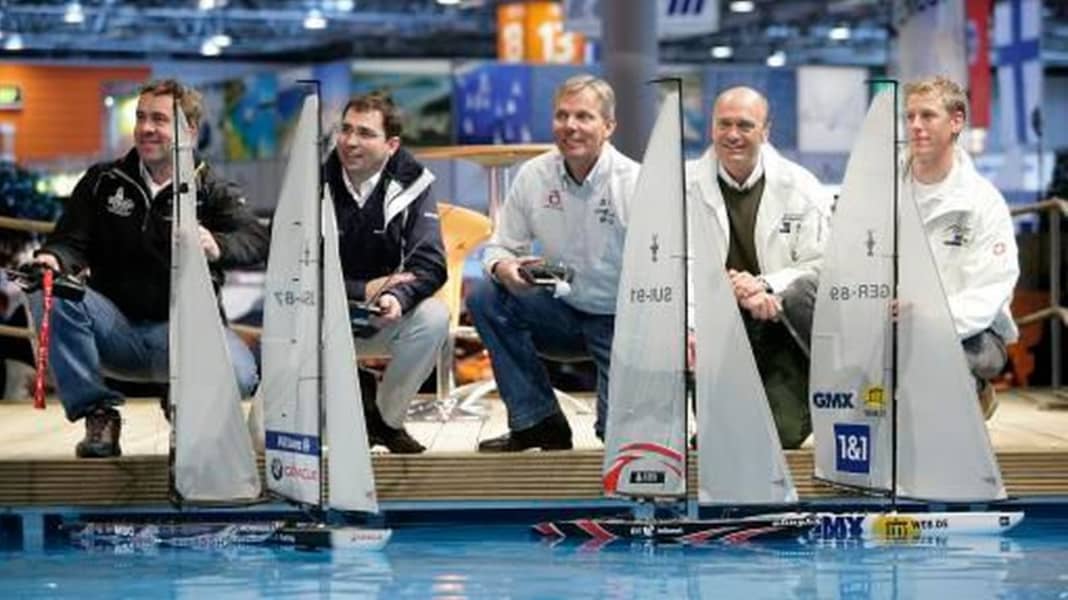
Sailors and marketers of the America's Cup shook the foundations of the event during a discussion round at the trade fair yesterday. All those involved are calling for better planning.
The basic rule that only the challenger sails against the defending champion should remain in place. But the Louis Vuitton Cup, the challenger round, must change, said Olympic champion Jochen Schümann, who is the sports director of Swiss title defender Alinghi.
"A Grand Prix series in the run-up to the Cup, possibly even in different countries, would be conceivable. The finals could then still take place in the defenders' favourite area," said the 52-year-old three-time Olympic champion Schümann.
The background to yesterday's discussion is the fact that the America's Cup is currently held every four years and only the winner decides where the next edition will take place. This means that the oldest regatta in the world can only be planned for teams and sponsors once a Cup edition has been completed.
Given the immense budgets of the teams and the equally large financial packages of the sponsors, this always deters potential investors. Around 1.5 billion euros are being spent in the current cycle alone. This includes the costs for yacht and harbour construction as well as for the teams, investments in the infrastructure of the host city and the income from tourism and marketing.
Of course, the special fascination of the America's Cup is that the winner receives all the rights and can do whatever they want with them, said Shosholoza's Head of Marketing Lars Böcking. However, he also questioned whether this is still in keeping with the times.
American billionaire Larry Ellison's BMW Oracle Racing team would like to shorten the Cup cycle from four to two years. "This would generate more interest, more excitement, better value for the sponsors and more events in a shorter period of time. It would make the Cup more affordable," said US spokesman Tom Ehman.
After 156 years, the America's Cup deserves a makeover, according to Hamburg-based professional sailor Tim Kröger, who works for the South African team Shosholoza. The Cup should borrow a few elements of success from Formula 1.
Jochen Schümann is also bothered by the planning uncertainty for those who are indirectly involved in the Cup. "Our families ask the same questions as the sponsors: Where are we going next time? We all have the same problem. Even more important than the question of the Cup cycle are early answers to the questions of where and how," he said.
